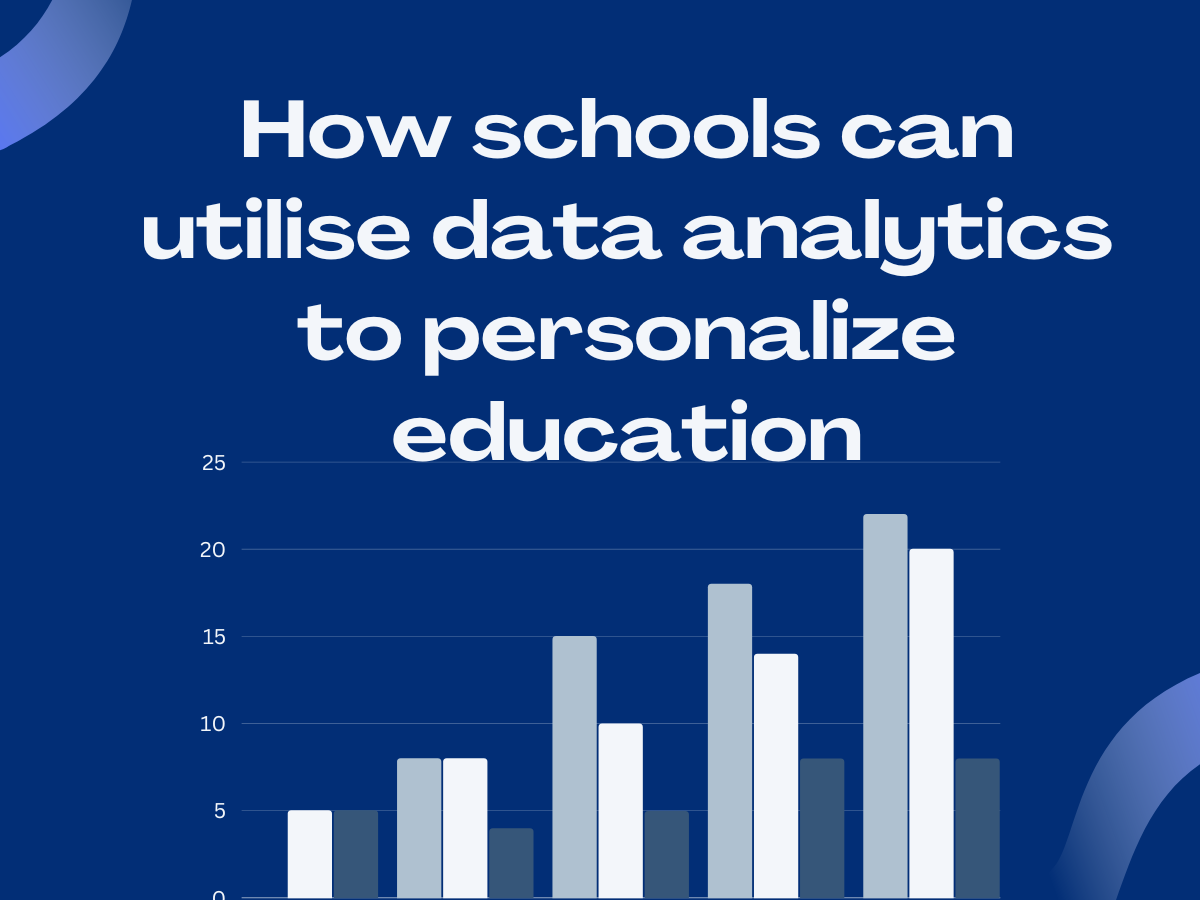Enhancing Education through Data Analytics: Personalizing Learning in Schools
By~ Scholar Planet
Created At: 19 May, 2023

In today's digital age, data
analytics has emerged as a powerful tool for understanding and improving
various aspects of our lives. When it comes to education, harnessing the
potential of data analytics can revolutionize the way schools personalize
learning experiences for their students. By leveraging data-driven insights,
educators can tailor instruction to individual students' needs, preferences, and
learning styles, leading to improved academic outcomes. In this article, we
will explore how schools can utilize data analytics to personalize education
and create a more effective and engaging learning environment.
1. Identifying Learning Patterns
and Needs
Data analytics enables schools to
gather and analyze vast amounts of information about students' academic
performance, behaviour, and engagement. Educators can gain valuable insights into students' learning needs and preferences by identifying patterns in this data. For example, by analyzing assessment scores, teachers can identify
specific areas where students struggle and adjust instructional strategies
accordingly.
2. Individualized Instruction and
Adaptive Learning
With the help of learning
management systems and educational software, schools can create personalized
learning paths for each student based on their strengths, weaknesses, and
progress. Adaptive learning platforms use algorithms to adjust the difficulty
and pace of learning materials based on individual performance, ensuring that
students are appropriately challenged and supported. This tailored approach can
enhance students' motivation, engagement, and overall learning outcomes.
3. Early Intervention and
Targeted Support
Data analytics can provide early
intervention and targeted support for struggling students. By monitoring
various indicators, such as attendance, grades, and behaviour, schools can
identify students who may be at risk of falling behind academically or
experiencing social-emotional difficulties. With timely intervention and
personalized support, educators can address these challenges before they
escalate, helping students stay on track and succeed.
4. Enhancing Parent-Teacher
Communication
Data analytics can facilitate
better communication between educators and parents by providing real-time
updates on students' progress, strengths, and areas for improvement. Through
online portals or mobile applications, parents can access detailed information
about their child's academic performance, attendance, and engagement. This
transparent and data-driven approach promotes collaborative efforts between
parents and teachers to support students' personalized learning journeys.
Data
analytics has the potential to revolutionize education by enabling personalized
learning experiences for students. By harnessing the power of data, schools can
identify individual learning needs, offer tailored instruction, provide
targeted support, and foster strong parent-teacher partnerships. As educational
institutions continue to embrace data analytics, they can create a more
engaging, inclusive, and effective learning environment that meets the unique
needs of every student.
Keeping
all of the above in mind, we at Scholar Planet have introduced dashboards for
students, parents, teachers, and schools. By personalizing education, we empower
students to reach their full potential and prepare them for success in an
increasingly data-driven world.
Download the app now:
